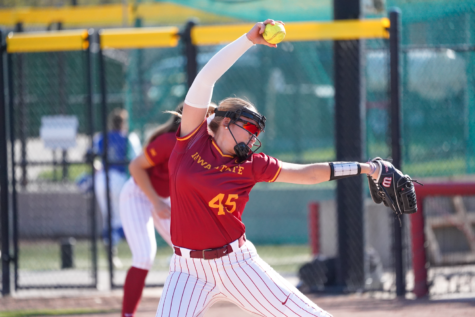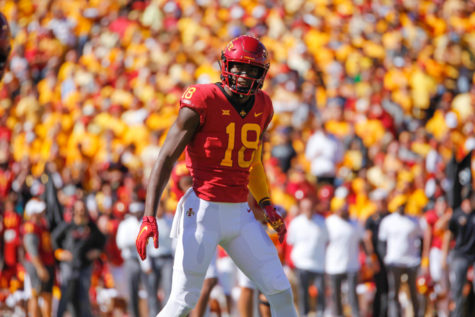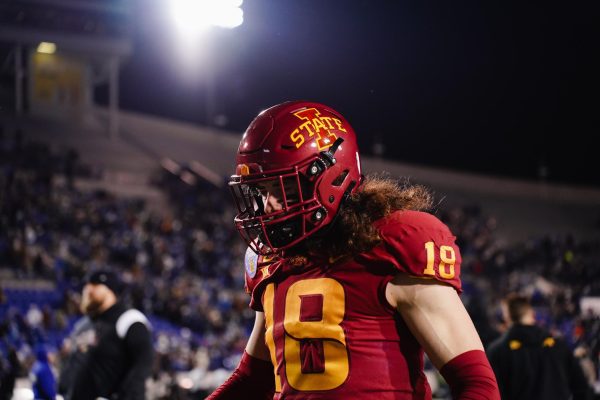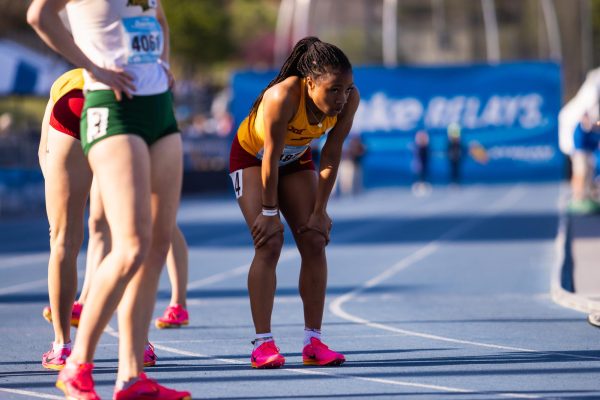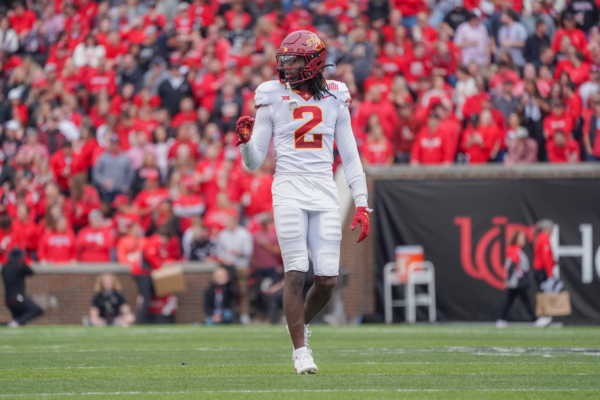Murdoch’s philosophy: School first, hockey second
October 11, 2011
Ever since he began the Cyclone hockey program, coach Al Murdoch has stressed to his players academics more than anything else — including hockey.
Despite not being under the watchful eye of the NCAA and its regulations, Murdoch has built a good academic reputation with his program and insists his players take academics very seriously.
“Our [standards] are tougher,” Murdoch said. “The NCAA is a little softer. They want them to ease into the academics. Our freshmen have to have a 2.0 GPA in their first semester and earn 12 credits.”
The message is heard loud and clear even before the players arrive to Ames. Murdoch said he will not recruit a player who did not achieve a 3.0 GPA in high school. He also said parents are surprised when he begins the discussion to their child.
“Every other school they’ve been at, they talk about hockey first,” Murdoch said. “I talk about academics first.”
Brody Toigo, a redshirt senior, said he got that sort of recruiting pitch when he was looking at potential destinations out of junior hockey.
“[Murdoch] only recruits people that are going to be focused on academics primarily, and then hockey,” Toigo said. “He says the better you are in the classroom, the better you are on the ice. So I knew it was going to be a lot of work.”
As a freshman, Toigo said he struggled through his first semester trying to balance hockey and schoolwork. For some players, it can be too much to handle.
Last year, three players failed to meet the ACHA academic requirements of earning 12 credit hours and a 2.0 GPA. Freshmen and sophomores are held to that standard as well, unlike NCAA regulations.
“[My first year] was madness,” said senior Brian Rooney. “I kind of got thrown into the fire and it was a sink-or-swim situation. But you figure it out. If you want to make it happen, you can do it. It’s not impossible, it’s just a matter of managing your time.”
Several resources are available to the players. The coaching staff encourages players to use the Hixson-Lied Student Success Center as well as tutors and study groups.
From the first day of preseason camp, study skills are taught.
“Upperclassmen go with the freshmen to the Student Success Center for a tour,” Murdoch said. “Next day they go to the library and show them where they study.”
One of the biggest areas of focus that Rooney alluded to is time management. Since playing hockey takes up many hours per week, knowing organizational skills is very important. Murdoch and the upperclassmen teach the newcomers how to do it effectively.
At the beginning of the semester, Murdoch has his players print out their class schedule as well as obtain a planner in order to organize their time efficiently.
“Full time management of everything,” Murdoch said. “By keeping a schedule, it frees up their brain to think about other things like hockey on the ice or the subject matter in the class.”
Murdoch said the graduation rate of his players is around 91 percent. Seniors last year have either graduated or are working on finishing their degrees right now.
But if they want to go pro, Murdoch requires they finish their degree.
“I tell them, ‘You finish your degree, then you talk to me and we’ll get you an opportunity to play pro somewhere,'” Murdoch said.
Academics follow the team wherever it goes. Studying on the bus to away games is mandatory and players with the same major tend to room together, helping one another with test preparation and homework.
“On the road we’re always studying on the bus,” Rooney said. “So it’s non-stop. Academics always comes first and hockey a close second.”
Even with the importance he places on academics, it’s safe to say Murdoch practices what he preaches. A professor in the kinesiology department, Murdoch knows full well the importance of academics.
“I’ll ask the new players, ‘You ever played for a coach with a Ph.D.?'” Murdoch said. “It’s usually pretty silent. Real quiet. They’ll say, ‘Uh, no.'”










